Couples Therapy

Couples therapy can be the beginning of the healing process and reconnection that many people need to see their relationship last. There wasn’t a handbook on how to stand the test of time given to you when you got together, but there are tools and advice that can help you and your partner rediscover your love, understanding, and devotion to one another. In this blog, we break down the mental aspect of couples therapy, misconceptions, challenges, and more that will not only make you feel more comfortable approaching couples therapy but also become the foundation of building a strong and lasting relationship.
Individual Mental Health
When it comes to couples therapy, the role of individual mental health is a pivotal factor in the dynamics between partners. Think of it as a puzzle or two interlocking gears; a complete relationship requires the presence of two emotionally complete individuals. This understanding challenges the notion that both parties must be perfectly balanced from the start. The truth is, marriage isn't going to be a rigid 50-50 equation; some days may require more of a 60-40 effort, while others might be 80-20. There are even days when neither partner can contribute their share. The key lies in recognizing and embracing individual autonomy and independence. A healthy marriage or relationship thrives when both individuals are sufficiently self-aware and can complement each other's needs. This awareness becomes the cornerstone for navigating couples therapy and building a strong foundation for sustainable partnerships.
Misconceptions about Couples Therapy
One prevalent misconception in couples therapy revolves around the idea that the therapist will take sides with one partner over the other. It's important to debunk this myth and clarify that the therapist's role is a neutral one focused on the health and well-being of the relationship itself. They are not an individual therapist for either spouse or partner but rather dedicated to the couple. This distinction is crucial for trust and transparency. Another misconception that couples often grapple with is that therapy should be reserved for moments of crisis. Rather, it should be emphasized that seeking therapy early on, even at the beginning of a relationship, is a proactive and constructive approach. Couples therapy serves as a tool for learning effective communication and understanding how to navigate merging two independent lives into one. It is encouraged that couples do not delay seeking help, recognizing that addressing challenges early on can prevent them from escalating.
Advice for Couples Drifting Apart
It is completely normal for couples to experience the feeling that they are drifting apart. It’s important to remember that every couple goes through these phases. The best advice when this happens is to keep things simple and rediscover each other. Revisit the early days of your relationship, recapture date nights and shared moments. Go back to basics, whether it's a walk in the park, a cozy evening in the backyard with a blanket and a glass of wine, or even feeling like a kid again and sharing a milkshake. The emphasis is on making it simple and rekindling the joy of dating. This allows you to get to know each other again and reconnect. In the hustle of daily activities, kids, jobs, aging parents, and more, partners often lose sight of each other. But by embracing these uncomplicated yet meaningful activities, couples can bridge the gap that might have developed over time. Sometimes, the most powerful remedy for drifting apart is found in the simplicity of shared experiences and the genuine effort to get to know each other once again.
Common Challenges in Couples Therapy
Every couple has their own communication patterns that help shape their dynamic. A good way of understanding this is by imagining an infinity symbol. In this pattern, one partner speaks, the other interprets, reacts emotionally, and responds—and that cycle repeats over and over. This pattern becomes problematic when couples find themselves trapped in negative cycles. When that happens, partners experience a sense of being stuck and often have conversations that seem to revolve around surface-level topics, while there is a deeper underlying issue. These couples may have escalating levels of anger, defensiveness, anxiety, or sadness, intensifying rapidly and disproportionately to the surface-level discussions. That is the point where couples typically seek therapy. From there, the therapist’s process involves slowing down this communication pattern, dissecting its layers, and identifying the unspoken issues beneath. Through de-escalation and a careful examination of the root problems, the therapist guides couples to have the necessary conversations that can reshape their communication patterns.
Emotionally Focused Therapy (EFT)
A part of the therapist process can be evidence-based couples therapy, or, Emotionally Focused Therapy (EFT). EFT is grounded in Attachment Theory, which says that secure emotional bonds are fundamental for human well-being. It views relationship distress as a result of unmet attachment needs and the inability to create a secure emotional connection. Our therapist go through the stages listed below to help couples connect on an emotional level again.
- Stage 1: De-escalation: Identifying negative patterns, reducing conflict, and managing emotional reactivity.
- Stage 2: Restructuring: Building new, positive patterns of interaction and communication.
- Stage 3: Consolidation: Strengthening the changes made and maintaining a secure bond.
EFT is proven to be one of the most successful ways for couples to regain the relationship they once had and build better upon it. It allows couples to realize the importance of consistently strengthening their bond, gain a better understanding of each other, and learn how best to communicate. Using this technique, the challenges presented in couples therapy become easier to overcome.
When it comes to couples therapy, navigating individual mental health, dispelling misconceptions, offering strategies for reconnection, and addressing common communication challenges all contribute to building resilient and fulfilling relationships. In remembering the simplicity of dating again, proactively seeking therapy early on, and reshaping negative communication cycles, couples gain guidance to understand themselves and their partners better. Ultimately, the goal is to create a space for couples to thrive, building strong foundations, communication, and a connection that stands the test of time. For help learning more about couples therapy, contact TN Mental Wellness today.










LEAVE A COMMENT